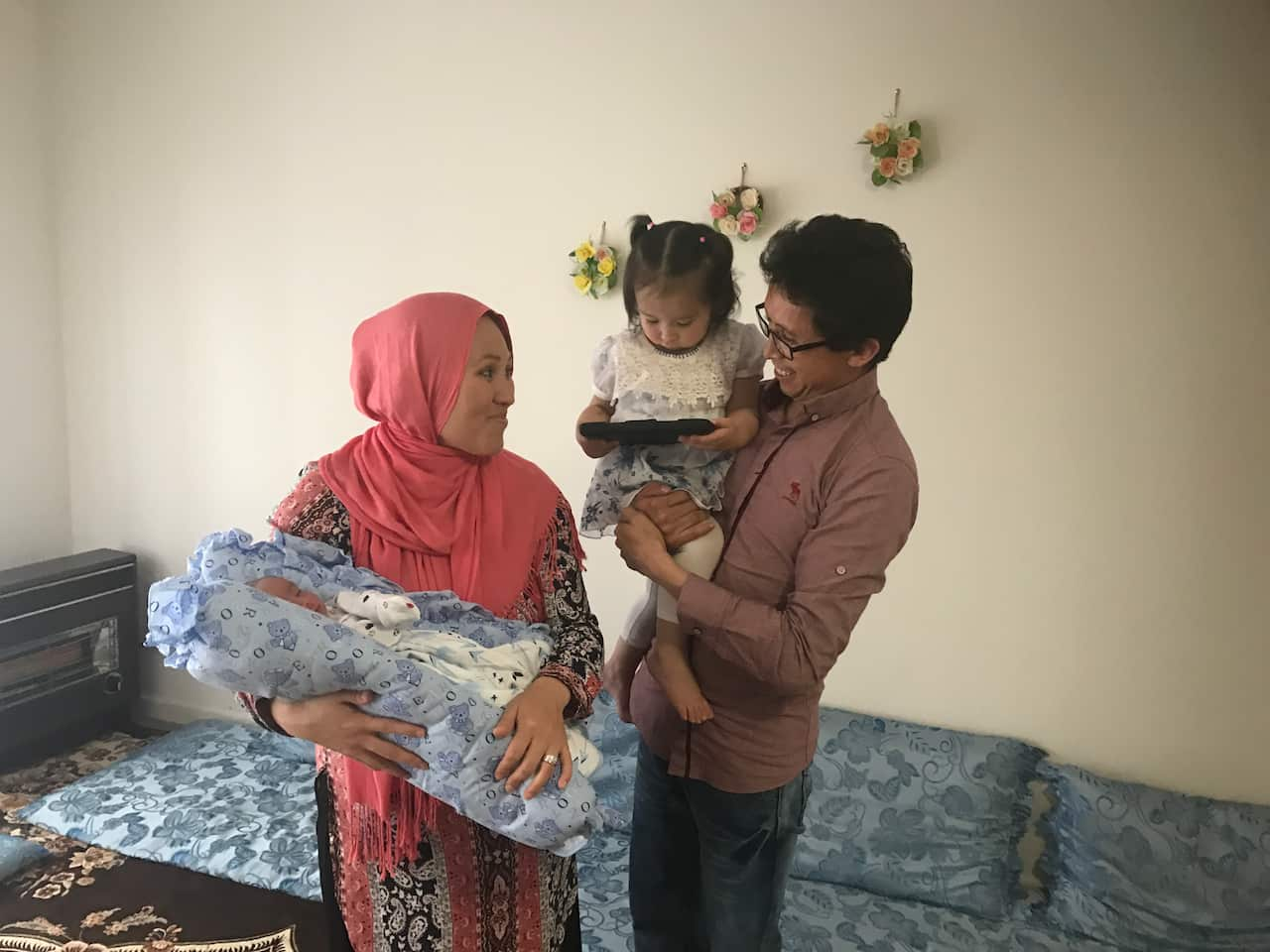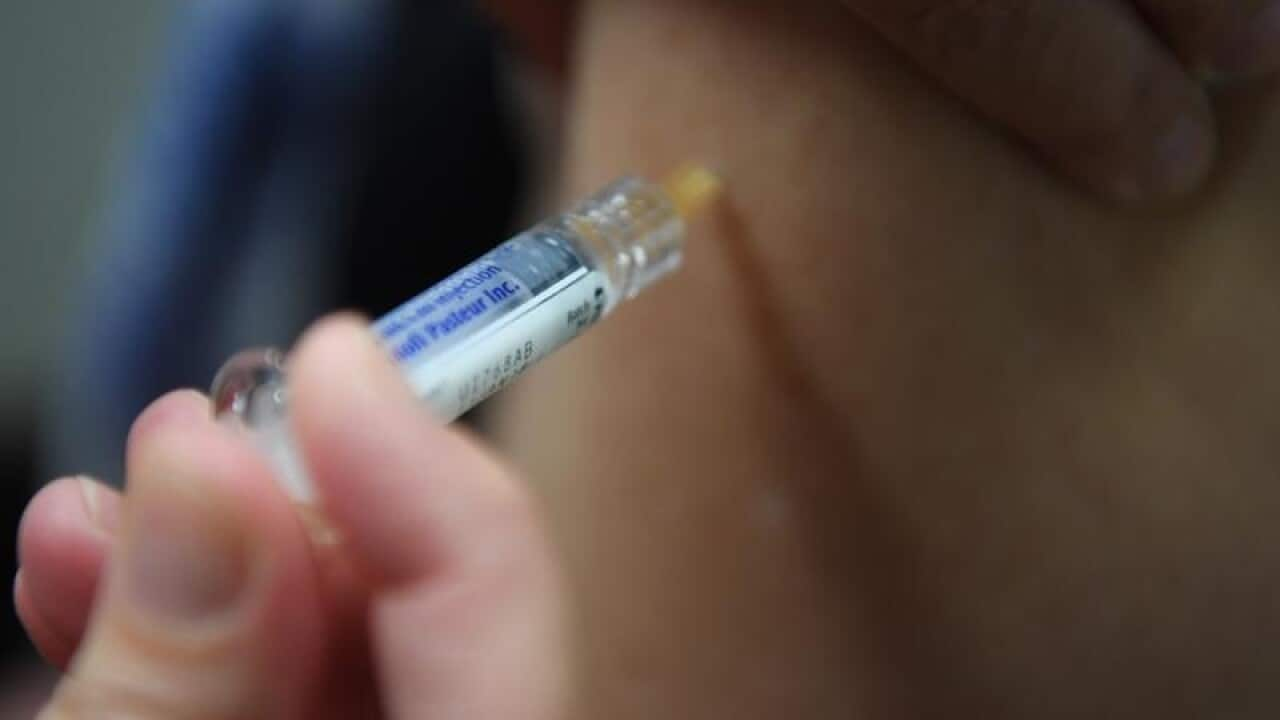For Afghan-born Ramazan Kawish, a former UN worker turned refugee, who came to Australia in 2011, vaccinating his seven-day old son has been a top priority.
"It was a dream come true to have access to these sort of services," he told SBS World News.
"Because I know a lot of people back in Afghanistan, my country, my hometown, they wanted to have the immunisation for their kids but they didn't have the access."
He says it's the case for many refugees, but not all know how to access the services.
Mr Kawish was advised by a GP, who spoke his first language, Hazargi. But most refugees don't have that advantage and many, according to a first of its kind study, get lost in the system.
But most refugees don't have that advantage and many, according to a first of its kind study, get lost in the system.

Afghan refugee Ramazan Kawish and family. Source: SBS
Lead author, Dr Abela Mahimbo, cites poor integration between key support services.
"There was just this lack of coordination and integration between these groups so leading to gaps, and people just slipping through the cracks," she said.
The report reveals inconsistent immunisation coverage of Australia's refugee community.
The University of New South Wales study indicates a clear need for a national policy that would ensure a tailored and unified program that targets refugees.
While most states and territories have an overall immunisation strategy, a number do not have policies that cater to the refugee population, despite growing evidence of under-immunisation for that group.
RELATED READING

Meningococcal vaccine approved for infants
Only New South Wales, the Northern Territory and Western Australia have developed refugee-specific policies.
In the ACT and Victoria, refugees are recognised as an at-risk group but, according to the study, there are no government strategies in place to address the issue.
For Queensland, South Australia and Tasmania, there is little evidence to suggest it's being acknowledged on a policy level.
Refugees a blind spot
Until now, no study has evaluated immunisation policies targeting Australia’s refugee population.
Unlike the United States, which requires incoming refugees to undergo an extensive immunisation schedule before they arrive, Australia relies on post-arrival immunisation.
"But then post arrival, although there are screenings in place, it seems that they don't get immunised adequately," says Dr Mahimbo.
While Australia has one of the most comprehensive national immunisation programs in the world, each year it accepts thousands of refugees - many of whom are under-immunised before and after resettlement.
RELATED READING

France to make 11 vaccines compulsory in 2018
Over the past decade, 55 per cent of Australia’s refugees have come from Iraq, Sudan, Myanmar and Afghanistan.
Unrest has caused disruption to health services, making refugees susceptible to vaccine-preventable diseases.
Dr Mahimbo says it’s an issue that affects the whole community.
“Pockets of under-immunised populations are a public health issue as they not only heighten refugees’ risk of vaccine-preventable diseases, but can also lead to outbreaks of vaccine-preventable diseases within the wider community,” she said.
Earlier this year, for the first time, the government made catch-up vaccines of all ages, in an expansion of the National Immunisation Program.
Dr Mahimbo says it’s a good start.
“The best way to solve this issue is to ensure all refugees are adequately immunised, equivalent to the Australian immunisation schedule.”
But the study highlighted complexities in delivering the catch-up immunisations, including insufficient training on on refugee-specific health needs among general practitioners.
Ensuring completion of catch-up immunisation among families with multiple members has also proved to be difficult.
RELATED READING

Australia's deadly flu outbreak prompts new health warnings
Unified strategy
The current National Immunisation Strategy mentions the need for improving immunisation rates for refugees, but according the report there is no mention of any strategic action to address this.
The study also referred to a 2014 immunisation workshop where a key recommendation was the need for a comprehensive immunisation policy for refugees, but there has been little effort in this space.
The researchers say a unified strategy would address the gaps.
It has the backing of health professionals, including President of the Royal Australian College of General Practitioners Dr Bastian Seidel.
"We need to have a national approach. We need to be better in recording vaccinations and need to be better in having this dialogue of healthcare needs of refugees early on."





